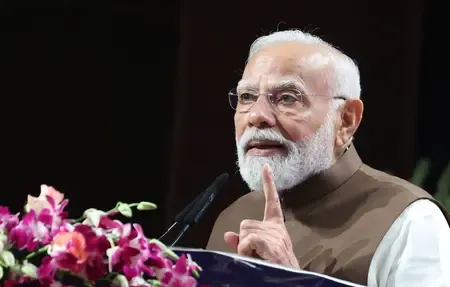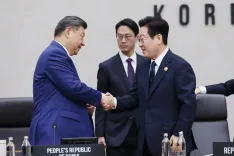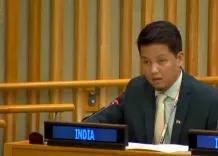Could ASEAN and Regional Partners Achieve Complete Denuclearization of the Korean Peninsula?

Synopsis
Key Takeaways
- ASEAN and regional partners advocate for complete denuclearization.
- Dialogue among involved parties is essential for peace.
- North Korea's absence from the forum raises concerns.
- South Korea seeks to ease tensions while addressing threats.
- The ARF includes key global players in security discussions.
Kuala Lumpur, July 12 (NationPress) Southeast Asian nations and partners from the Indo-Pacific region, including South Korea and the United States, have emphasized the need for concerted efforts towards the "complete denuclearization" of the Korean Peninsula, as outlined in a joint statement released Saturday, concluding this week's multilateral meeting led by the Association of Southeast Asian Nations (ASEAN).
The chair's statement from the ASEAN Regional Forum (ARF), made public on Friday, further highlighted the necessity to resume dialogue among the involved parties for maintaining peace and stability. This appeal comes at a crucial time as South Korea aims to enhance inter-Korean relations under President Lee Jae Myung's new administration.
According to the statement, "The Meeting called for the full implementation of all relevant UNSC Resolutions and noted international efforts to bring about the complete denuclearization of the Korean Peninsula."
Furthermore, the Meeting stressed the significance of restoring peaceful dialogue among all stakeholders to achieve lasting peace and stability in a denuclearized Korean Peninsula. The choice of the term "complete" to characterize North Korea's denuclearization marks a departure from last year's statement, which demanded "complete, verifiable and irreversible" denuclearization—a phrase considered to carry a more assertive tone.
The ARF statement, published annually after the ASEAN meetings, garners attention for how it reconciles differing stances on key security matters among participating nations, which also include China, Russia, and North Korea.
The modifications in the latest statement may indicate Seoul's more conciliatory stance in its inter-Korean policy. President Lee has advocated for reducing tensions between the two Koreas and pursuing dialogue with Pyongyang while simultaneously responding firmly to North Korea's nuclear and missile threats in collaboration with the international community, as reported by Yonhap News Agency.
First Vice Foreign Minister Park Yoon-joo, the top representative at this week's ASEAN meetings, emphasized these calls throughout the venue.
North Korea has cut off all communication with South Korea amidst stalled nuclear negotiations, which collapsed without resolution in Hanoi in 2019.
Participating nations also expressed "grave concern" over North Korea's ongoing missile launches, which threaten to destabilize the Korean Peninsula, urging Pyongyang to fully comply with all pertinent UN Security Council resolutions.
The ARF is a comprehensive security forum that includes the 10 ASEAN member states, the United States, China, Japan, the European Union, and other countries from South Asia and the Pacific, along with North Korea.
Notably, North Korea was absent from this year's session, marking its first non-participation since joining the forum in 2000.








